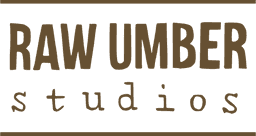Portrait Painting with Allan Ramsay (Mar 2025)
This 4 day portrait painting workshop is perfect for artists of all levels. You will produce a single finished portrait based on close observation of the live model. Allan will give focussed demonstrations of specific topics, as well as plenty of individual 1:1 guidance. Allan will understand and support each individual student's goals, style and aspirations. He will also introduce you to great drawings and paintings from the past and present to illustrate the concepts involved.
In this workshop there will be a focus on the studio as a creative community. For example, Allan will lead:
- Group discussions of a painting by another artist you particular admire (please bring along an example)
- Constructive group discussions of your work at the end of each day: often one person's successes or struggles can illustrate a point that is pertinent to the group
This course has a maximum of 12 students.
What will I learn?
- How to create a portrait painting from start to finish
- An understanding of basic concepts of construction and ways of looking required to create a portrait .
- An understanding of basic anatomy in relation to shape recognition
- The importance of drawing,
- Tonal values, colour temperature ,shape and edges
- An understanding of palette organisation ,basic colour mixing and laying down of paint
- Which brushes to use when, and how
Who is the tutor?
"Allan is an excellent teacher, always very friendly and keen to help, both beginners and experienced painters" - Jeffrey Brain
This course is taught by Allan Ramsay. He has studied at Glasgow School of Art, Edinburgh College of Art and at The Art Students League of New York. He is a 1st prizewinner of the John Player Portrait Awards at the National Portrait Gallery, London (since the BP Portrait Award, and now the Herbert Smith Freeholds Portrait Award). His painting of Alan Ayckbourn is on display in the NPG.
He has held portrait workshops at The National Portrait Gallery, London; Glasgow Museums and Galleries; Glasgow School of Art and Wimbledon School of Art.
He has exhibited regularly at the Royal Society of Portrait Painters, The Royal Academy London and has completed portrait commissions for numerous institutions including the Universities of Oxford and Cambridge and The National Portrait Gallery, London.
"Allan is a fabulous art teacher and a joy to be around, mixing his dry humour with insightful comments. His knowledge of painting generally and art history is excellent. I can’t recommend him highly enough" - Andrew T
You learn more about Allan at his website here.
Course structure
Day 1 - Drawing
On the first day you will create a series of drawings in charcoal and pencil to provide the preparating for painting. You will focus on:
- Planes
- Modelling of form
- Inclusion of detail
- Achieving a likeness
- Producing a finished drawing, ready for day 2
Day 2 - Painting
On day 2, you will transfer your drawing to a canvas and start an underpainting. You will carry on learning about the topics introduced in day one, and also about:
- The principle of fat over lean
- How to organise your palette
- Basic colour recognition, colour mixing and paint handling
- The different components of colour: value, chroma and saturation
By the end of day 2 you will have a solid foundation for the next two days of painting
Days 3 and 4 - Painting
On the final two days, you will bring your painting to a conclusion. Along the way, you will continue to apply and deepen the concepts you have learned so far, but you will also:
- Learn how to evaluate your painting and come up with a plan of action
- How to best implement the plan given the constraints you have
- How to bring your painting to a conclusion
Materials
Paint is separated into two kinds, so called “Student Quality“ and “Artist Quality” which is more expensive
Excellent paintings have been created by both kinds of paint. The cheaper quality of paint will refer to a colour as “Hue” as in “Cadmium yellow hue“. This means that it looks like Cadmium yellow but is not a genuine colour. It may not remain lightfast over time and may fade and discolour. Whether this matters is a personal choice. Allan's personal view is that the cheaper paint is very useful as we learn to paint and that “Artist Quality” paint is essential as our skills develop.
Students should bring all their materials that they are comfortable with and that they already use. This list is for guidance:
PAINT
Titanium White, Yellow Ochre, Lemon Yellow, Cadmium Yellow Pale, Venetian Red, Cadmium Red, Alizarin Crimson, Magenta, Ultramarine Blue, Burnt Sienna, Raw Umber, Burnt Umber, Ivory Black
THINNER
Low Odour Thinner, such as Sansodor. Please make sure this is from reputable art supply company, not from a hardware store
Please note that turpentine is not permitted in the studio
PALETTE KNIFE
Small Trowel Shaped Palette Knife
DIPPERS
Double dippers are little tin pots for holding thinners
PALETTE
Palettes can be wooden or paper tear-off palettes. Do not buy plastic palettes
KITCHEN ROLL
BRUSHES
If you have your own preferred brushes then please bring those.
If not, then a range of synthetic brushes with long handles, for instance, a brush set like this, a few long flat hog brushes and 2 x Size 0 synthetic filberts
Alternatively, this starter brush set should have everything you need
CANVASES
At least 2 canvases or canvas boards from a reputable art supplier, approximately 16"x14"/40cm x 30cm. We recommend these.
A PAINTING YOU ADMIRE
Please bring along an image (on your phone is OK) of a painting you admire.
Any questions?
If you have any questions, please see our frequently asked questions or contact us.
